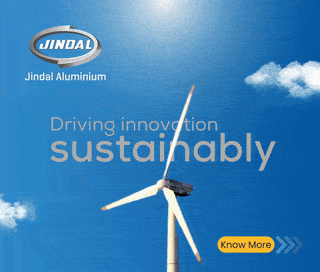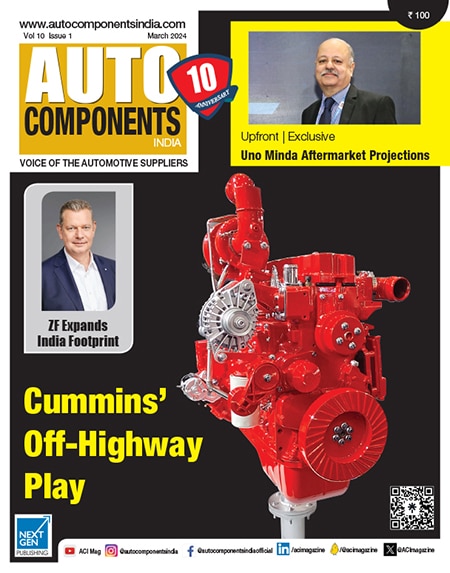Martin Koers, President, Verband Der Automobilindustrie (VDA) draws attention to the need of taking green energy sources seriously by Auto components manufacturers from a long term perspective. He speaks to ACI correspondent, Deven Lad about similarities between the Indian and German auto industry and the changes that the stakeholders of the respective nations can look forward to.
Q. How stable is the International automotive market in comparison to the Indian automotive market?
Koers. The Indian automotive market’s decline wasn’t predicted. The situation in the Indian automotive market is the same as other parts of the world market which has shrunk by (-) five per cent internationally. When it comes to decline of Indian and Chinese market, everybody hopes the two markets bounce back.
Q. Is the German automotive market experiencing a similar slowdown?
Koers. Both Germany and India are facing the same problem. Be it the environmental issues, climate change, traffic congestion, both have to find solutions pertaining to these burning issues. Interestingly, we are in an era where new technologies are coming to the market. Electrification of powertrains, digitisation and the level of autonomy are good solutions for the future of mobility. The industry needs high investments to be made in these areas at a time when the market is witnessing a downward trend. The stakeholders of the industry hope to earn a return on their investment.

“We need to think in broader terms from a long term perspective. Along with battery-driven cars we also need to think of using synthetic fuel and renewable energy sources.”- Martin Koers, President, Verband Der Automobilindustrie (VDA)
Q. Does India need to focus on turning technologically agnostic?
Koers. In big cities where pollution is a big concern, electric vehicles are a good solution. However, we need to look out for different mobility solutions and technologies. At VDA, we are convinced that the Internal Combustion Engine (ICE) has a future as well. We need to think in broader terms from a long term perspective. Along with battery-driven cars we also need to think of using synthetic fuel and renewable energy sources. We are confident of achieving the overall goal of carbon-neutrality.
Q. How do you think we can achieve this?
Koers. Electrification makes sense when it comes from renewable energy and therefore we need to focus on green energy sources. The Government should have a holistic approach keeping in mind the interests of the auto industry and the energy sector. In Germany, we use an estimated 35 per cent of the installed renewable energy sources. By 2050, we want to attain 80 per cent. We hope it is manageable and a workable solution. At the same time, we should keep costs in mind. India’s solar energy resources are key to achieving the carbon neutrality targets.
Q. What is the biggest strength of the Indian auto industry?
Koers. The strength of the Indian auto industry is that the market is huge. There is a need for mobility and smart solutions, at the same time the need is for electrification. Even in Germany, there is a need to build adequate infrastructure. When you introduce a product it needs to be backed by the specific infrastructure which needs to be installed. Those helming the affairs of the country need to speed up the development of infrastructure.
Q. Any global trends that can make way to India in the near term?
Koers. When it comes to new technology, things like alternative powertrain and digitalisation, concepts like Connectivity, Autonomous drive, Sharing and Electrification (CASE) going forward will be some of the key future trends. Auto manufacturers and suppliers are expected to work on this. We are in the process of transformation and this is expected to have a big implication. On the supply side, suppliers have to transform themselves. If they don’t change, the future will be quite awful for them.
Q. Do you think the global markets will fight back?
Koers. The industry and the auto community have to handle the disruption caused by Government regulations. Initially, one expects to have teething issues and as a result they might experience a slowdown but gradually the market will bounce back. In case of India, apart from the financial issues, there are other problems that need to be solved for future growth.













